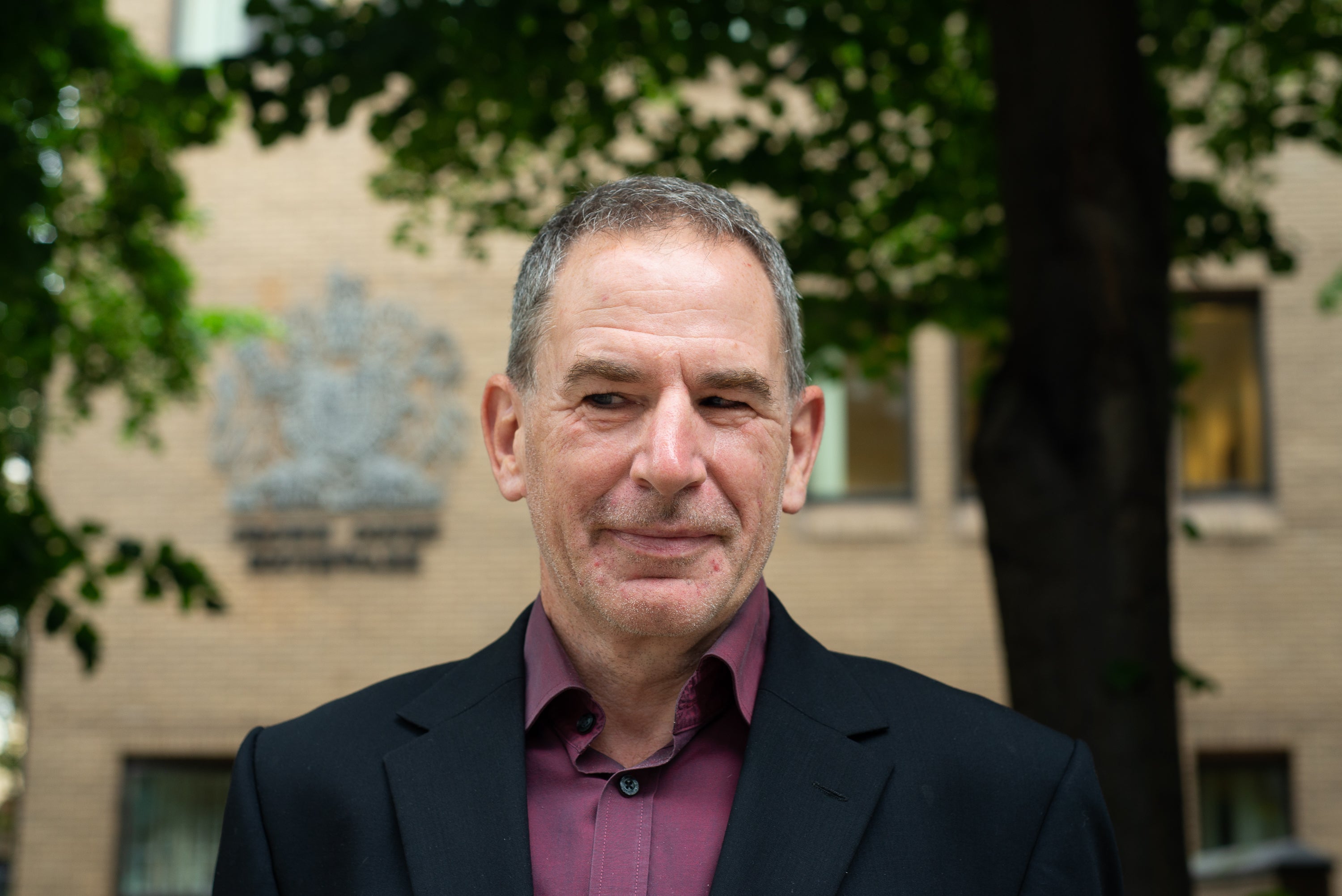Activist who had sentence cut says justice system ‘torn’ over climate protesters
Former Paralympic athlete James Brown was given a 12-month jail term after supergluing himself to the roof of a British Airways plane.

An Extinction Rebellion activist who had his jail sentence cut by appeal judges after being convicted of causing a public nuisance at an airport says the “criminal justice system” is “deeply conflicted” over climate crisis protesters.
Former Paralympic athlete James Brown of Exeter, Devon, was given a 12-month prison term after supergluing himself to the roof of a British Airways plane at London City Airport in a bid to draw attention to the climate crisis.
Three appeal judges on Friday cut the sentence to four months.
Brown, who had been jailed by a judge at Southwark Crown Court in September, said after the appeal ruling: “We will never be intimidated and never give up”.
Lawyers representing Brown, who has been registered blind since birth, challenged his conviction and sentence at a Court of Appeal hearing in London in December.
Three appeal judges, Lord Burnett, the Lord Chief Justice; Lord Justice Singh; and Mr Justice Goss dismissed Brown’s appeal against conviction.
They had allowed Brown to be released from prison on bail at the December appeal hearing.
“We’re seeing a criminal justice system deeply conflicted over the prosecution of those peacefully resisting the destruction of life on earth,” Brown said.
“Juries are refusing to convict, magistrates are throwing cases out of court, and now the Court of Appeal has rejected a crown court’s attempt to impose a ‘deterrent sentence’ on my act of nonviolent civil disobedience at City Airport.
“It’s clear that the Government’s desperate attempt to re-exert control with its police and sentencing Bill will fail, not only because we will never be intimidated and never give up, but because not even the courts of this country will accept such a fundamental violation of our rights and our democracy.”
Brown added: “The real criminals are those knowingly destroying the conditions which make the planet habitable.”
The right to peaceful protest should not lead to tolerance of behaviour that is far removed from conveying a strongly held conviction but instead seeks to cause chaos and as much harm as possible to members of the public
In a written ruling, Lord Burnett said people who caused major disruption at airports and were convicted of causing a public nuisance ran “a substantial risk” of going to prison.
But he said appeal judges had considered whether a 12-month jail term was “manifestly excessive” in the light of Brown’s conduct, antecedents and disability.
He added: “Taking account of all the circumstances, we have concluded that the sentence should be one of four months’ imprisonment.”
Lord Burnett said the judges’ “starting point” took into account the “impact” of Brown’s conduct, as well as the “broader intention to cause wider disruption and the need for deterrence”.
He added: “The right to peaceful protest should not lead to tolerance of behaviour that is far removed from conveying a strongly held conviction but instead seeks to cause chaos and as much harm as possible to members of the public.”
Lord Burnett said judges concluded that Brown’s conviction was not “unsafe”.
Judge Gregory Perrins, who had jailed Brown, said when passing sentence after the trial that he had “cynically used” his disability and put his “own life at risk” to carry out the stunt on October 10 2019.
The double gold medallist climbed onto the plane, which was destined for Amsterdam, before gluing his right hand to the aircraft and wedging his mobile phone in the door to prevent it from closing.
He livestreamed the protest until he was removed after an hour.
Brown, whose family is from Belfast, represented Great Britain in cycling and athletics before going on to represent Ireland in cross-country skiing.
Some 337 passengers had their flights cancelled due to his protest, with the disruption costing the airline around £40,000, Southwark Crown Court was told.
Brown, who represented himself at his trial, denied causing a public nuisance and said he had “to do something spectacular” to draw attention to the climate crisis.
He was found guilty after a jury deliberated for less than an hour.
Solicitor Raj Chada, who represented Brown and is based at law firm Hodge, Jones & Allen, said the firm is “disappointed that his conviction has been upheld”.
He added: “We will be reviewing the judgment carefully and considering our appeal options.”
